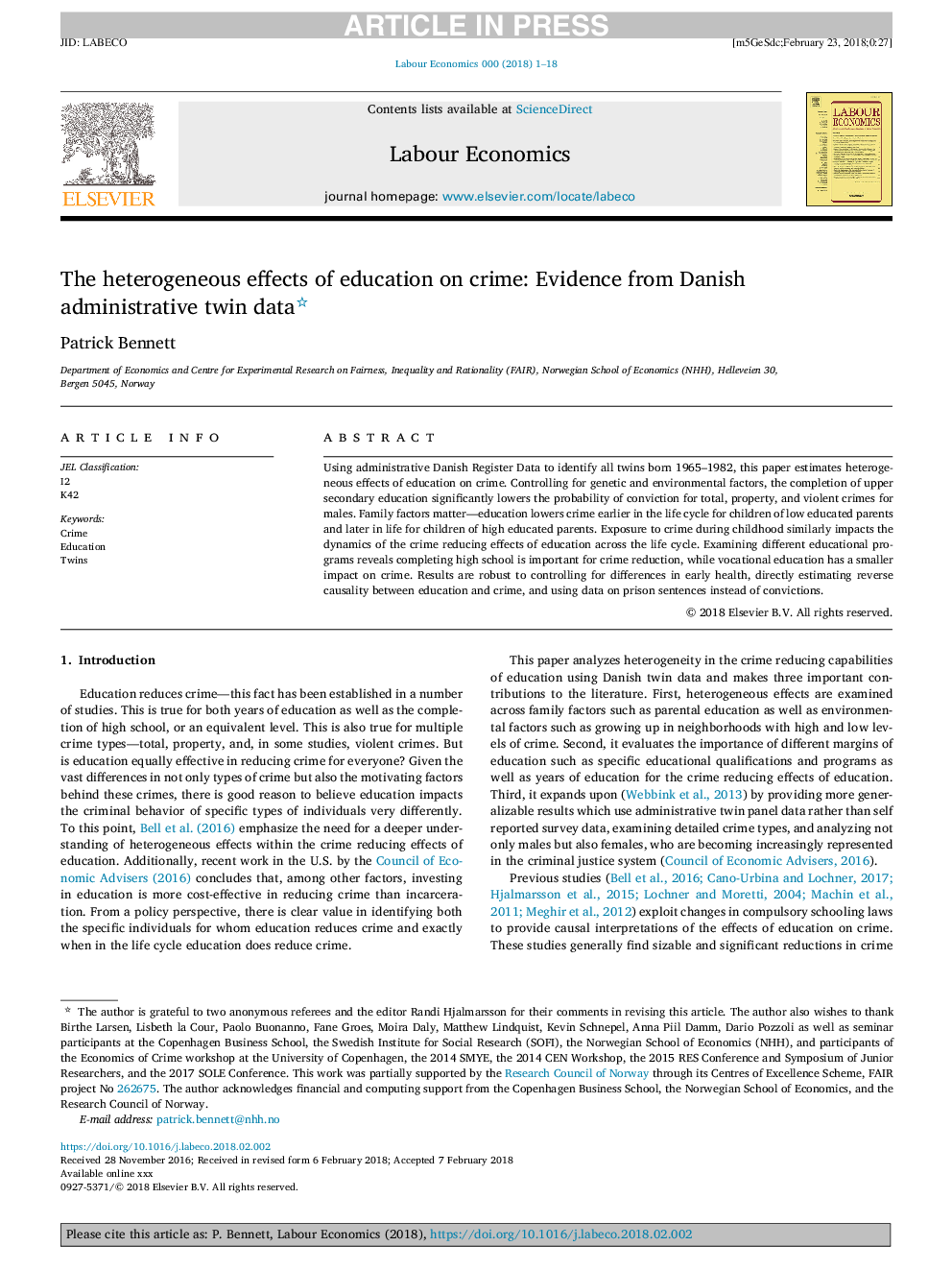| Article ID | Journal | Published Year | Pages | File Type |
|---|---|---|---|---|
| 7371215 | Labour Economics | 2018 | 18 Pages |
Abstract
Using administrative Danish Register Data to identify all twins born 1965-1982, this paper estimates heterogeneous effects of education on crime. Controlling for genetic and environmental factors, the completion of upper secondary education significantly lowers the probability of conviction for total, property, and violent crimes for males. Family factors matter-education lowers crime earlier in the life cycle for children of low educated parents and later in life for children of high educated parents. Exposure to crime during childhood similarly impacts the dynamics of the crime reducing effects of education across the life cycle. Examining different educational programs reveals completing high school is important for crime reduction, while vocational education has a smaller impact on crime. Results are robust to controlling for differences in early health, directly estimating reverse causality between education and crime, and using data on prison sentences instead of convictions.
Related Topics
Social Sciences and Humanities
Economics, Econometrics and Finance
Economics and Econometrics
Authors
Patrick Bennett,
